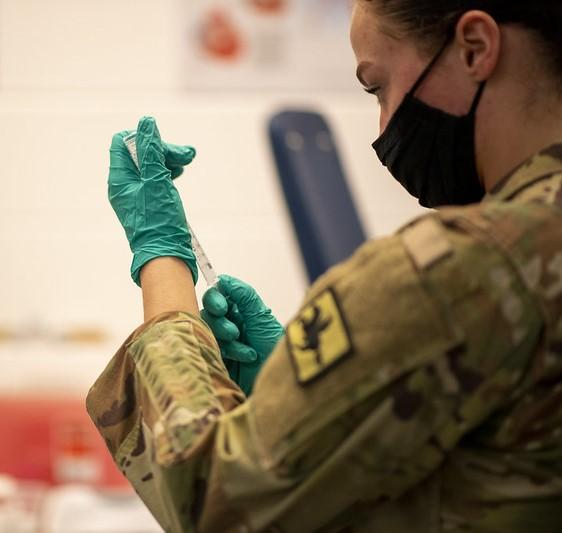The US Food and Drug Administration (FDA) and advisers to the Centers for Disease Control and Prevention (CDC) today approved both Pfizer-BioNTech and Moderna boosters for all US adults who completed their primary vaccine series for those two mRNA vaccines at least 6 months ago.
Adults who received the Johnson & Johnson one-dose viral vector (non-mRNA) COVID vaccine 2 or months ago are also eligible for an mRNA booster.
'Streamlining' eligibility
"Streamlining the eligibility criteria and making booster doses available to all individuals 18 years of age and older will also help to eliminate confusion about who may receive a booster dose and ensure booster doses are available to all who may need one," said Peter Marks, MD, PhD, director of the FDA's Center for Biologics Evaluation and Research, in an FDA statement.
The FDA did not hold a meeting of the Vaccines and Related Biological Products Advisory Committee to discuss this recommendation, instead relying on recent data on the safety and efficacy of Pfizer and Moderna boosters.
ACIP, the Advisory Committee on Immunization Practices to the CDC today voted 11-0 to recommend these boosters, citing few serious side effects and high immunogenicity as strong reasons to recommend the shots for millions of Americans.
This week at least 10 states moved forward with offering boosters to all adults who asked. The guidance from the FDA and CDC will mean every state can begin offering boosters as soon as this weekend.
Risk of myocarditis unknown
The risk of myocarditis after booster doses of mRNA vaccine was discussed at length during the ACIP meeting. Tom Shimabukuro, MD, MPH, of the CDC shared that 12 booster vaccine recipients (among 26 million) have met the CDC clinical guidelines for vaccine-related myocarditis. Nine of the 12 were men, and 8 had gotten the Pfizer booster, while 4 received a Moderna booster.
The true risk of myocarditis is likely extremely low, Shimabukuro said, but remained unknown because relatively few young adult males, the group most like to experience the inflammatory condition, have been boosted. Shimabukuro heads the CDC's Vaccine Safety Team.
The second half the ACIP meeting was dominated by a discussion of whether the committee would use the words "should" or "may" when recommending the boosters for people ages 50 to 64. Some members of ACIP argued that members of this group with no underlying health conditions should consider boosters optional, while others said the majority of people over 50 have medical issues that would qualify them to get a booster, and should do so.
The committee agreed that those ages 18 to 49 may receive a booster, based on a personal balance of risks and benefits. Those 18 and older who live in long-term care facilities should also get a booster, ACIP said.
The committee then agreed that adults 50 years and older should get a booster, if it had been at least 6 months after their primary series.
"As a clinician deep in the clinical trenches, I am really grateful we have clarity on these boosters for patients," said ACIP member Camille Kotton, MD, of Massachusetts General Hospital.
During the closing remarks, ACIP Chair Grace Lee, MD, commented this was the 22nd ACIP meeting since the COVID-19 pandemic began.
CDC Director Rochelle Walenskey, MD, MPH, is expected to formally accept ACIP’s recommendation later today.





















